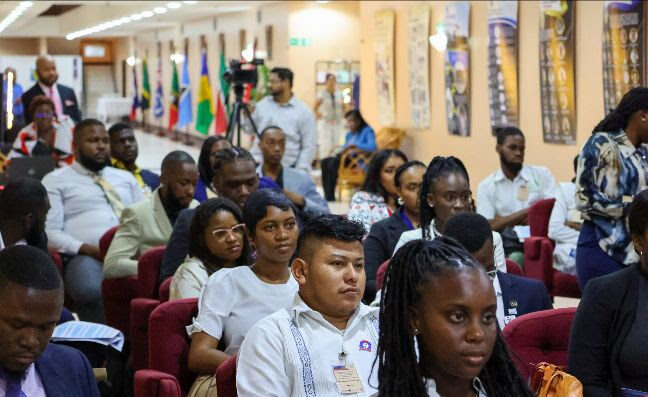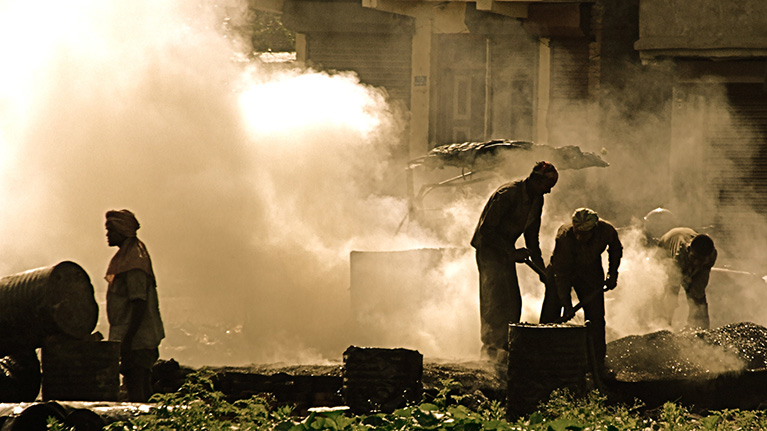By Desmond Brown – Executive Editor
ABU DHABI, United Arab Emirates – Antigua and Barbuda Prime Minister Gaston Browne Saturday said that transitioning to renewable energy is a priority for his government, as he signed a US$15 million concessional loan agreement with the Abu Dhabi Fund for Development (ADFD).
Speaking with Caribbean News Service (CNS) at the 7th Annual Assembly of the International Renewable Energy Agency (IRENA) which opened here today, Prime Minister Browne his government has consistently demonstrated its commitment to chart a pathway to a sustainable energy future.
“In 2016, we invested in the region of US$22 million in solar energy, and this year we’ll invest another US$15 million in a combination of wind and solar,” he told CNS.
He said the new funds would be used to finance desalination plants that are located throughout the island and provide energy support for various government buildings including schools, clinics and the island’s lone hospital.
“I am quite sure that this will make a major difference and make Antigua and Barbuda a more climate resilient country and at the same time help us in making the island greener and also help us to reduce the cost of water,” Browne said.
“One of the things which we have actually suffered from is the issue of drought. We have had a prolonged drought for the last four years and we became almost 100 percent reliant on reverse osmosis water which is six times as expensive as normal rain water.
“So, that in itself has been a major problem even for APUA (Antigua Public Utilities Authority), that supplies water, in that we have had to heavily subsidize the cost of water,” he added.
The Prime Minister noted that having part of the loan utilized to generate power for the desalination facilities, will help the country reduce the price of water, or at least maintain the very low price of water to the people of Antigua and Barbuda.
He said farmers would also benefit, noting that the challenge in satisfying the demand for water has resulted in the government investing in two additional reverse osmosis plants within the last year.
“This year, we will certainly invest in a third one, but again, it’s going to add to the power requirements. I believe the existing plants take up about 5 MW and I’m quite sure the additional three plants that we would have added to the grid will probably add another three MW of power, which is expensive, so this facility will help us to reduce the cost of power and certainly reduce our reliance on fossil fuels,” he said,
Antigua and Barbuda is easily one of the most vulnerable countries to the effects of climate change and the ADFD loan is expected to help the island-nation become more climate resilient, and at the same time, ensure greater energy security.
“It will help us to reduce our energy costs and to make energy more affordable to consumers, especially homeowners as well as manufacturers and even those who are involved in the hotel sector. They can be assured that there will be a reduction in the energy costs of the country,” Prime Minister Browne said.
Highlighting the importance of the loan in assisting the country to transition into green energy, Browne noted that Antigua and Barbuda had actually set a target of reducing emissions by about 20 percent by 2019 and have at least 20 percent renewable energy.
“We are now very close. In fact, I am quite sure that we’ll meet that target in full before 2019 because we are determined to ensure that we spend perhaps in the region of about eight to 10 percent of our annual budget to transition into green energy.
 “The effects or the benefits are many, and we are very pleased that the Abu Dhabi Fund for Development would have assisted us in getting this concessional loan in order to make that transition. And I’m saying this in the context of a small island state with very limited resources and one in which it’s very difficult to access concessional financing. So, we are extremely grateful to the Abu Dhabi Fund for Development as well as the Government and people of the United Arab Emirates for making this a possibility,” Browne said.
“The effects or the benefits are many, and we are very pleased that the Abu Dhabi Fund for Development would have assisted us in getting this concessional loan in order to make that transition. And I’m saying this in the context of a small island state with very limited resources and one in which it’s very difficult to access concessional financing. So, we are extremely grateful to the Abu Dhabi Fund for Development as well as the Government and people of the United Arab Emirates for making this a possibility,” Browne said.
The Prime Minister said that within the next 12 months “we should be able to go to tender and have this project installed. All of the money is in place and I would imagine that installation should take place within six to nine months,” adding that from the fourth quarter of this year onwards, residents should see the benefits.
Like our Facebook page https://www.facebook.com/CaribbeanNewsService/
Follow us on Twitter https://twitter.com/CNewsService
Follow us on Instagram https://www.instagram.com/caribbeannewsservice/




